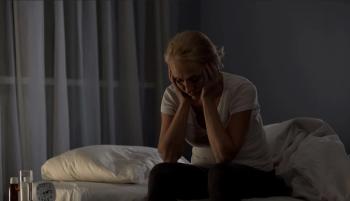
Sugar Rush Does Not Sharpen Sleepy Brain
LEICESTERSHIRE, England -- The energy boost provided by a sugary drink is only a temporary respite for an afternoon's torpor and, in the end, is counterproductive, said researchers here.
LEICESTERSHIRE, England, July 25 -- The energy boost provided by a sugary drink is only a temporary respite for an afternoon's torpor and, in the end, is counterproductive, said researchers here.
A better strategy would be to bypass the sugar and combine a higher-caffeine beverage with a quick nap, said Clare Anderson, Ph.D., and colleagues at Loughborough University's Sleep Research Center here in the July issue of Human Psychopharmacology: Clinical and Experimental.
They evaluated a popular energy drink claiming to offer "brain and body energy." The drink contained a high amount of sugar (17g per 100 mL) but a low amount of caffeine (12 mg per 100 mL). For comparison, coffee has about 40 mg per 100 ml, the researchers said.
The study results would also apply to soft drinks that are high in sugar and moderate in caffeine level, the scientists said.
The double-blind crossover study included 10 healthy young adults (average age: 22). After restricting their sleep to five hours the night before so they would be sleepy in the afternoon, the participants had a light lunch and drank either the popular energy drink or a similarly flavored control drink containing no caffeine or sugar. At 2 p.m., they underwent a 90-minute Psychomotor Vigilance Test and regular assessments of sleepiness on the nine-point Karolinska Sleepiness Scale.
There were no significant differences until 80 minutes into the testing. At this time, the energy drink group began to commit more lapses of attention on the vigilance test. They committed an average of nearly seven lapses per 10 minutes, compared with less than four lapses in the control group (P<0.03).
There was also a trend toward slower reaction times beginning at 80 minutes of testing, with the energy drink group averaging a time of about 350 milliseconds compared with about 330 milliseconds for the control group, but the difference did not reach statistical significance (P=0.18).
There was a trend toward greater sleepiness in the energy drink group, which scored about half a point higher on the sleepiness scale during the first hour of testing, but the trend did not achieve significance (P not given), the scientists said.
"Whilst there is good evidence that a bolus sugar intake can boost 'physical energy,' one must be circumspect that, without prior signs of hypoglycemia, there is little support for it having any benefits for a sleepy brain," the authors concluded.
"People wishing to alleviate sleepiness through the use of high-sugar-content soft drinks, erroneously believing what is commonly assumed to be a 'sugar rush' to be effective in this respect, should be selective and avoid those drinks containing little or no caffeine," they said.
"It is caffeine which is particularly effective here, especially when combined with a short nap," they said. Because caffeine takes about 30 minutes to work, a 20-minute nap can be taken immediately after consuming the caffeine, they said.
Newsletter
Enhance your clinical practice with the Patient Care newsletter, offering the latest evidence-based guidelines, diagnostic insights, and treatment strategies for primary care physicians.
































































































































